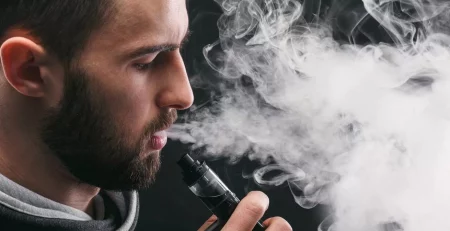How to Tell Someone You Relapsed
Practical and Personal Advice from a Relapser on What to Do
I can tell you from personal experience: the recovery process ain’t easy. As rewarding as sobriety can be, it has its challenges. Substance abuse is an ongoing situation. I’ve had over a year of clean time up to this point, but I’ve relapsed many times.
If you are looking for help and ways how to tell someone you relapsed, you have come to the right blog!
It took many attempts for me to get clean, and even if it didn’t work every time, each attempt was worth it because I discovered lasting recovery through Icarus Behavioral Health in New Mexico. As a chronic relapser, I’ve ignored warning signs and concerns of family members.
But you can learn from my mistakes, and get ways that can help show your friends and family that, even though you relapsed, you are committed to getting healthy and value their support!
The Cycle Of Relapse Can be Relentless for Some of Us

Each time I’ve relapsed, I’ve had a lot of strong emotions and feelings of doubt. With each relapse, it felt more and more like long-term sobriety was out of my reach. My drug abuse was strong enough that I kept going back to my old ways even when it seemed like things were going good.
This is the trick of substance abuse. The recovery process isn’t clear-cut. A relapse can come out of nowhere. Even when you find support and get the right professional help, you are at the mercy of your emotions and triggers.
If you are a chronic relapser or you have a loved one relapse multiple times, don’t give up hope. Long-term sobriety is possible and you can put your drug or alcohol abuse behind you if you have the right head on your shoulders.
24 Hour Substance Abuse Rehab Hotline – Call Now!
When You Can’t Escape Substance Abuse
As a longtime drug addict, I know what hopelessness feels like. Putting your substance abuse behind you and moving forward in recovery is tricky. You can have all the support in the world, but achieving lasting recovery requires a certain amount of mental toughness and focus.
The hardest part of a relapse is having to tell your loved ones. Feeling guilty is a normal part of relapse. I’ve been on both sides of this. I’ve been the one having to confide to a trusted friend that I slipped up, and I’ve been the person on the other end of it. Neither one is an easy side to be on.
Being Afraid To Admit a Slip Happened
The only thing worse than confessing to a trusted person that you relapsed is trying to hide it. I’ve done this as well. It made my guilt so much worse, and I did everything I could to hide the fact that I slipped. Once it is discovered that you relapsed and tried to hide it, the trust can be broken.
Trust is such a huge part of the recovery process. Unfortunately, lies are a huge part of drug abuse. Many addicts lie. You tell people you are doing good. You tell your family members that you are clean, even if you are high while doing it.
Navigating The Emotions And Feelings Of Relapse
If I had to count, I’d say that I probably relapsed ten times before I finally had a lengthy period of sobriety. I would get clean, focus on my self care, and then slip up as soon as I thought I was in the clear. This is a common occurrence in recovery.
You think that when things are going good, you have nothing to worry about. The cravings and triggers will go away, but they rarely do. This can be difficult to deal with emotionally. All it takes is one moment of weakness to go back to your old ways again.
Letting Down A Family Member or Loved One

The worst I ever felt through my recovery journey was letting down the people who trusted me. Shame is a big part of confessing that you’ve relapsed. Even when the person you are confiding in is understanding and supportive, it’s still tough to move past your guilt.
I’ve witnessed all kinds of reactions. I’ve had loved ones get angry and emotional with me over a relapse, and I’ve had others who were compassionate. You can’t control how others react when you give them bad news like that, but you can control how you react and the steps you need to take moving forward.
Having The Talk About Relapse, Support, and Treatment Options
If you relapse, the best advice I can give is not to hide it. Don’t put yourself through that. I understand shame big time, and I know it’s hard to let down your loved ones, but honesty is the most important step always. Struggling to maintain sobriety is a huge part of the process no matter what.
Shame and guilt go hand in hand with substance abuse. The trick is not to be too hard on yourself. I was my own worst enemy at times through my addiction, and it only made things worse.
You have to let yourself off the hook. No one is perfect, and you aren’t going to have some magical recovery. Everyone struggles to a certain extent. I’ve yet to meet anybody that got sober and never struggled to maintain sobriety.
Practicing Self-Care and Protecting Your Mental Health
If you have a good head on your shoulders, you will have an easier time succeeding in recovery. Often, addiction and mental health issues are intertwined. A lot of people who suffer from drug or alcohol abuse have some kind of emotional issues that lead them to addiction.
Rehabilitation centers like Icarus offer dual-diagnosis programs that help you deal with your addiction and mental health issues at the same time. If you get clean but you aren’t in the best place emotionally, relapse is almost guaranteed.
You need to learn healthy ways to cope through the process. Learning not to act erratically or impulsively is vital to the process. It can be tiresome to try and keep yourself in check 24/7, but it’s possible with a little bit of discipline.
In My Story Support Groups Have Made All The Difference

When you have a safe space to talk out your feelings and emotions, you almost always leave with a sense of relief. I was scared to attend support groups at first, but I encountered some of the most supportive people I’ve ever met through these groups.
There are almost always some kind of local resources in your area when it comes to alcohol and drug abuse groups. No matter where you live, you are probably a short drive away from a support group that can help you work through your issues.
I’ve been in meetings where I had to admit that I recently relapsed and am starting the process all over. It’s tough to put yourself out there like that, but everyone in there knows how it feels. I hear someone open up about relapse at nearly every meeting I go to. It’s not unusual.
If you take responsibility and are honest, you will feel the love and support no matter what. I’ve never been to a support group where people tried to make somebody feel bad for slipping up. This is simply unacceptable behavior in that kind of arena.
Being On The Receiving End of a Relapse Confession
If you find yourself on the receiving end of someone confessing that they relapsed, you are in a unique position to help. Don’t react emotionally. Be calm, be courteous. Don’t act frustrated or judgmental.
I use a matter-of-fact approach. I talk about my own struggles. I let people know they have a great opportunity to use their relapse as a learning experience. Anything in life can be a learning experience, even a sad or frustrating experience like a relapse.
You can use it to your advantage. Just because you slipped up doesn’t mean you need to throw it all away. You still have the tools in place to get right back on the wagon and move forward. I’ve seen it happen over and over again.
Get Effective Detox and Rehab Options – Call Now!
My Favorite Coping Skills For Relapse
The best coping skill is to do something positive that you enjoy. Get out and exercise. Go see a movie. Go on a small trip. Anything that normally brings you enjoyment or fulfillment can be an incredible coping mechanism. It can be hard to feel the desire to do it, but sometimes you just have to force yourself into it.
We all have things that we enjoy doing that don’t revolve around drugs or alcohol. When you are actively using, you end up tricking yourself into thinking you need to be intoxicated to feel any kind of enjoyment. You think sobriety is boring.
It’s all part of the mental gymnastics of recovery. There’s nothing fun about being strung out or hungover to the point where you can’t get out of bed. What’s really fun and inspiring is having the energy and drive to get out and be productive.
Maintaining The Recovery Process

I encourage people who recently relapsed to start going to meetings on a daily basis. As you get further and further into sobriety, you can sometimes neglect the process. I’ve found myself doing this. I’ll go to meetings less and less. I won’t notice warning signs.
It’s important to remember that recovery is an ongoing situation that requires a certain level of maintenance. Life isn’t easy. If it were, nobody would use drugs or alcohol to try and distract them from their personal issues.
Building Confidence In Recovery is Work in Progress
Being confident is the ultimate tool in maintaining your sobriety. The only way to build confidence is by following the process and being responsible for your own life. It helps to have the right group of people around you as well. When you are around other confident, supportive people, it’s infectious.
Whatever happened in your past is done. The present is the only thing that matters in recovery. Taking it one day at a time is the only way to make it work. If you focus too much on the past or future, that’s when people tend to slip.
Up To 100% of Rehab Costs Covered By Insurance – Call Now!
Getting Back in Active Recovery at Icarus Worked for Me
When you put in the work, you see the results. It sounds simple, but it’s the best advice I ever got in recovery. If you just expect it all to fall in your lap, then you might be in trouble. You have to have the right attitude and a clear head to achieve lasting sobriety.
Following countless relapses, I am clean today and have a long period of sobriety because of the people I met through Icarus. If you need help or want to encourage a loved one to get back on track following a relapse, there’s no better place to do it.
If you (or someone you care about who has expressed their relapse) need support in a safe and effective setting, give them a call. I am grateful every day that I did, and I bet you will be too.











